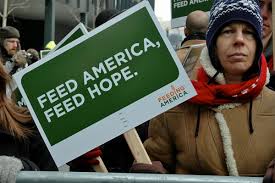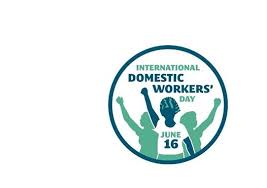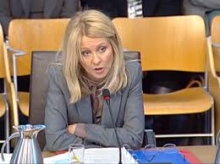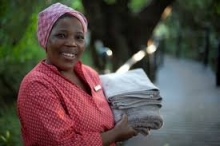Work TV
Watch our TV Channel dedicated to the ‘World of Work’. Explore our video library for informative videos featuring career opportunities at leading companies, franchising opportunities, further education and recruitment professions and their services.
Simon Collyer
Prudential Say This Is the Sixth Year Half of People Reaching Retirement Age Planned to Carry on Working
Half of people due to reach state pension age this year are planning to stay in employment rather than retiring, with many expecting to scale back on work.
More than a quarter (26%) of those planning to delay their retirement wanted to reduce their hours or take a part-time job with their current employer, while only 14% wanted to continue working full time in their current position, according to a survey by Prudential.
Ageing workforce
Prudential pension provider said this was the sixth consecutive year where half of people reaching retirement age planned to carry on working if it meant they could guarantee a higher retirement income.
Of the 1,000 people who had been due to retire in 2018, 8% had postponed their plans because they could not afford to retire. Nearly half of those who could not afford to give up their job said their retirement income would not be sufficient to meet day-to-day living costs.
ABC Note: add a comment and have you say below.

Have Your Say With The ABC, We Open Up The ABC Website For Comments
Via our talented Joomlar expert, web developer and programmer, Mike Veeckmans who runs Joombiz - Traveeka bvba, we have opened our website for moderated comments.
No profanity, libellous, inflammatory, racist or sexist comments will be permitted, however this is your chance to say what you feel about the issues in our articles. Intelligent comments only PLEASE. We welcome fair debate, but we must all think of the image of those in receipt of benefits or state pensions.
Joombiz are located on the Belgium/Netherlands border.
Joombiz - Traveeka bvba,Turnhoutsebaan 266, 2110 Wijnegem, Belgium. Tel: +32 (3) 369 04 09
We highly recommend Joombiz and you can contact Mike and his team by clicking on the logo below:
ABC Press Release GP Patient Removal, The ABC Call for Fairer Practise
The ABC has sent out a press release regarding the way doctors surgeries operate.
*******
GP Patient Removal, The ABC Call for Fairer Practise
ABC Press Release 31/05/2018 For Immediate Release
The ABC, the Association of Pension & Benefits Claimants Cic, has written to, The Rt Hon Jeremy Hunt MP, Secretary of State for Health and Social Care about the new arrangements doctors surgeries are practicing, whereby the NHS can remove patients from GP lists on their requests. This can be actioned if patients miss two appointments.
Letters given to offending patients by the NHS state: ‘Practises can request the removal of a person from their list, just as a patient may transfer to the list of another practice without advising their present practice of their intentions’.
The ABC feel this is a system open to abuse by doctors and by hospitals, who might collude with local surgeries to remove difficult or troublesome patients from GP lists who have made a complaint or discharged themselves early from hospital.
A patient should be able to transfer from one doctor to another, like changing broadband suppliers, say the ABC. Doctors are in a contractual relationship to supply goods and services (healthcare and medicines). It does not follow that just as a patient might choose another surgery, a doctor’s surgery can dispense with clients (informally) as implied by this letter - clients that they are being paid to look after by the taxpayer.
The ABC wants to see that rules are standardized across all surgeries, and that patients are informed of these penalties in advance and given the right to a Mandatory Reconsideration. That that the NHS are obliged to inform patients of a formal complaints procedure and of their rights to appeal to the Parliamentary and Health Service Ombudsman, which is being omitted from NHS letters currently. Also, that the missing two appointments rule is not applied indefinitely.
‘The public is paying for a service’ said ABC founder Simon Collyer. ‘We are concerned that doctor’s surgeries or hospital staff can use the system to get rid of patients that in some cases have had a legitimate cause to complain, If for example. ten years ago, they missed an appointment or two’
‘Surgeries are under pressure, but so are their patients’ said Simon ‘especially those on low incomes’. ‘The ABC wants to see a system that is fair to all and more business-like’.
<ends>
For more information contact:
Simon Collyer
Founder
The Association of Pension & Benefits Claimants Cic (the ABC)
Telephone: +44 (0) 1206 509623 (DD)
Mobile: +44 (0) 7486515502
Skype: simon.collyer163
Email: This email address is being protected from spambots. You need JavaScript enabled to view it.
Website: www.abcorg.net
Notes to Editors:
- The Association of Pension & Benefits Claimants Cic (the ABC) is an association that aims to provide people receiving state pension and benefits with the knowledge and resources needed to secure meaningful employment. We also strive to ensure that people receiving welfare are well-informed and know what they are entitled to under the welfare system. We also have plenty of followers in the world-of-work and the gig economy too.
- The ABC are the founders of Work TV (under development).
- Please visit our website: www.abcorg.net and all articles are here: http://www.abcorg.net/all-news
Carillion Collapse Costs UK Taxpayers Millions
The National Audit Office has reported that the collapse of construction firm Carillion has cost the UK taxpayer almost £150 million pounds. Included in the end bill for the Carillion liquidation, said to be in the region of £500m, is a £50m payment to accountancy firm PwC who has been acting as special manager during the process.
Carillion collapsed into liquidation in January of this year with debts of over £1bn and a pensions deficit of £2.6bn which has now been brought under the Pension Protection Fund, the largest scheme to come under the PPF to date.
While the NAO did highlight that around 12,000 of the 20,000 strong Carillion workforce had now managed to find new jobs, 2,300 have been made redundant as a result of the collapse. A recent joint report into the collapse of Carillion by two parliamentary committees found a raft of failings both on the company's board and in its external checks and balances.
MPs accused Carillion executives of relying on suppliers to prop up the failing business and abusing the early payments system to hide its true levels of debt. The report concludes that the firms ex-directors should face a formal inquiry into their fitness to serve as company directors.
Have you lost your job with Carillion?
Where can I go for support?
JobCentre Plus, through its Rapid Response Service, is ready to support any employee affected by this announcement.
Support could include:
- helping people facing redundancy to write CVs and find jobs
- providing general information about benefits
- helping people to find the right training and learn new skills
- helping with costs like travel to work expenses.
Heriot-Watt University Report Shows 1,550 000 Were In Destitution At Some Point In 2017, Including 365,000 Children
A report written by Heriot-Watt University on behalf of The Joseph Rowntree Foundation (JRF) has found that more than one and a half million people (1,550 000) were in destitution at some point in 2017, including 365,000 children.
The report calls for the redesign of the social security system to ensure that nobody in the UK is left without the bare essentials that are needed to eat, stay warm and dry, and keep clean.
Levels of destitution have declined by around 25% between 2015 and 2017, and a reduction in benefit sanctions appears to be the most significant factor behind this.
For those left destitute, the report has identified that social security policies and practice can, in many cases, directly lead to destitution “by design” - from gaps, flaws and choices within the social security system - meaning that people are being left without support when they most need it.
People were defined as destitute if they have lacked two or more of the following six essentials over the past month because they cannot afford them, or their income is so low, less than £10 per day for a single person (excluding housing costs), that they have been unable to purchase them for themselves:
Shelter (have slept rough for one or more nights)
Food (have had fewer than two meals a day for two or more days)
Heating their home (have been unable to do this for five or more days)
Lighting their home (have been unable to do this for five or more days)
Appropriate clothing and footwear
Basic toiletries (soap, shampoo, toothpaste, toothbrush)
The main factors tipping people into destitution:
- low benefit levels, delays in receiving benefits and sanctions
- harsh and uncoordinated debt recovery practices by public authorities and utility companies
- pressures caused by poor health or disability
- high costs for housing and other essentials.
People largely become destitute following longer-term experiences of poverty, with single, younger men at highest risk. Three quarters of those in destitution were born in the UK and rates are highest in northern English and Scottish cities and some London boroughs.

Image: Campbell Robb, Chief Executive of the Joseph Rowntree Foundation
Campbell Robb, Chief Executive of the Joseph Rowntree Foundation, commented:
“Many of us rely on public services such as social security when hit with unexpected circumstances like job loss, relationship breakdown or ill health. Yet actions by government, local authorities and utility companies are leading to ‘destitution by design’: forcing people into a corner when they are penniless and have nowhere to turn. This is shameful.
“Social security should be an anchor holding people steady against powerful currents such as rising costs, insecure housing and jobs, and low pay, but people are instead becoming destitute with no clear way out.
“To be destitute doesn’t just mean getting by on very little, it’s losing the ability to keep a roof over your head, eat often enough, or afford warm clothes when it’s cold. You can’t keep yourself clean or put the lights on. This shouldn’t happen to anybody, let alone over one and a half million people in the UK.
“It doesn’t have to be this way. The reduction in benefit sanction rates has meant that some welcome headway has been made, but there is a real risk that once Universal Credit is embedded across the country, more people could again be at risk unless we make changes
“We all want to live in a society where we protect each other from harm, and we need to put things right to protect people from this degrading experience. We can start by redesigning our social security system so that it provides the basic protection people need.”
Professor Suzanne Fitzpatrick from the Institute for Social Policy, Housing, Equalities Research (I-SPHERE) at Heriot-Watt University was the lead author of the research. She said:
“It is clear from the people we spoke to that destitution has a huge impact not only on the practicalities of life but on people’s dignity. Destitution has many different causes such as sickness and ill health, debt, or even the direct result of social security policy, especially the sanctioning regime. Most often it’s the end point of a build-up of problems associated with deep and ongoing experiences of poverty.
“While no-one should ever have to be destitute, we estimate that levels have declined by around a quarter since 2015. This is good news. It’s likely that this has been driven by a decline in benefit sanction rates and falling unemployment and immigration.
“However, the apparent higher levels of sanctions in Universal Credit are a sharp warning that destitution could increase again as the new benefit expands in the coming years. Rebooting and improving the funding for local welfare assistance in England is one element of a package to provide the crisis support that people in destitution need.”
The research team is now calling on the UK Government to:
- End the freeze on working-age benefits so they at least keep up with the cost of essentials.
- Change the use of sanctions within Universal Credit so that people are not left destitute by design.
- Review the total amount of debt that can be clawed back from people receiving benefits, so they can keep their heads above water.
US School Kids May Be Missing Their Milk Say Campaigners
1 in 8 people struggle with hunger in the U.S. Feeding America is a hunger relief organization with a nationwide network of food banks feeding the hungry. They are battling many of the same problems as in Europe.
One out of two kids ages 9 and up fall short on calcium, vitamin D and potassium – essential nutrients they need to grow strong.1 And when school lets out for summer, that risk may be even greater for over 22 million kids who are served by free or reduced-price meal programs during the school year. For many kids in need, even basic staples like milk and the critical nutrients it provides are missing.
Milk is the top food source for calcium, vitamin D and potassium.2 That’s why Feeding America®, the nation’s largest domestic hunger relief organization – alongside America’s dairy farmers and milk companies – is working to pour more milk for kids in need this June for National Dairy Month. The Great American Milk Drive makes it easy for consumers to donate nutrient-rich milk to local children and families who face hunger.
With eight grams of protein per serving and three of the top nutrients most likely to be missing in kids’ diet—calcium, vitamin D and potassium— milk is an efficient and affordable way for America’s feeding programs to get critical nourishment to kids and families who need it.

Although some programs like the USDA’s Summer Food Service Program help to provide meals when school is not in session, the National School Lunch Program and the School Breakfast Program do not reach children during the summer months.
“At Feeding America, they know that fresh milk is a challenging item to donate. But they also also know milk is one of the most requested items among families and individuals served in our network,” said Andy Wilson, Chief Development Officer at Feeding America. “Thanks to our work with The Great American Milk Drive, we have a way to help families in need pour more milk for their children, helping to ensure they have the nutrients they need to thrive.”
Deliver Nutrient-Rich Milk Right in Your Own Community
Since 2014, Feeding America has partnered with The Great American Milk Drive to help deliver milk to its nationwide network of 200 food banks and 60,000 food pantries and meal programs. Through this first-of-its kind program, more than 1.5 million gallons – that’s more than 24 million servings – of milk have been delivered to food banks. Yet, there’s still more to do.

Image: US School children
While consumers are generous with canned foods and dry goods, food banks are only able to provide the equivalent of less than one gallon of milk per person, per year.
“Milk can be harder to donate because it’s perishable, which is why this program is so critical in helping to ensure that all kids have the nutrients they need to grow and develop,” said Victor Zaborsky, Vice President of Marketing for MilkPEP. “America’s milk brands and dairy families are committed to solving hunger in our communities, and together, with The Great American Milk Drive, have set a goal of providing 50 million servings of fresh nutrient-rich milk to kids and families served by Feeding America by 2020.”
This Dairy Month – and all summer long – The Great American Milk Drive makes it easy to deliver fresh milk, including its nine essential nutrients, to help power the simple joys of summer for kids and families. For as little as $5 at milklife.com/give, you can deliver a gallon of fresh milk to a family in need right in your own community.
About Feeding America
Feeding America® is the largest hunger-relief organization in the United States. Through a network of 200 food banks and 60,000 food pantries and meal programs, they provide meals to more than 46 million people each year. Feeding America also supports programs that prevent food waste and improve food security among the people they serve; educates the public about the problem of hunger; and advocates for legislation that protects people from going hungry. Individuals, charities, businesses and government all have a role in ending hunger. Donate. Volunteer. Advocate. Educate. Together we can all solve hunger they say.
About MilkPEP
MilkPEP, Washington, D.C., is funded by the nation's milk companies, who are committed to educating consumers about the many nutritious benefits of milk and ensuring all children have access to fresh, wholesome milk. The MilkPEP Board runs marketing programs, including Milk Life, a multi-faceted campaign highlighting the important role milk plays in helping families reach their full potential, Milk It! a campaign for kids built around their love of milk, and Built with Chocolate Milk, which inspires athletes to perform at their best and recover with lowfat chocolate milk. For more information, go to milklife.com and builtwithchocolatemilk.com.
About National Dairy Council
National Dairy Council® (NDC), the non-profit organization founded by dairy farmers, is committed to nutrition education and research-based communications. NDC provides science-based nutrition information to, and in collaboration with, a variety of stakeholders committed to fostering a healthier nation, including health professionals, educators, school nutrition directors, academia, industry, consumers and media. Established in 1915, NDC comprises a staff of registered dietitians and nutrition research and communications experts across the country. NDC is committed to promoting child health and wellness through programs such as Fuel Up to Play 60. Developed by NDC and the National Football League (NFL), Fuel Up to Play 60 encourages youth to consume nutrient-rich foods and achieve at least 60 minutes of physical activity every day. For more information, visit www.NationalDairyCouncil.org.
ABC Note: For more than 35 years, Feeding America has responded to the hunger crisis in America by providing food to people in need through a nationwide network of food banks.
The concept of food banking was developed by John van Hengel in Phoenix, AZ in the late 1960s. Van Hengel, a retired businessman, had been volunteering at a soup kitchen trying to find food to serve the hungry. One day, he met a desperate mother who regularly rummaged through grocery store garbage bins to find food for her children. She suggested that there should be a place where, instead of being thrown out, discarded food could be stored for people to pick up—like the way “banks” store money for future use. With that, an industry was born.
Van Hengel established St. Mary’s Food Bank in Phoenix, AZ as the nation’s first food bank. In its initial year, van Hengel and his team of volunteers distributed 275,000 pounds of food to people in need. Word of the food bank’s success quickly spread, and states began to take note. By 1977, food banks had been established in 18 cities across the country.
Today, Feeding America is the nation’s largest domestic hunger-relief organization—a powerful and efficient network of 200 food banks across the country. As food insecurity rates hold steady at the highest levels ever, the Feeding America network of food banks has risen to meet the need. We feed 46 million people at risk of hunger, including 12 million children
Video: Hunger in America
PIP Delays Underline Need For Devolved Welfare Powers Say Scots
Over 200,000 people forced to wait all summer for support they deserve.
Tory government delays to paying out in full money that up to 220,000 disabled people are entitled to underlines the need for social security powers to come to Holyrood, the SNP has said – after welfare axewoman Esther McVey announced that those entitled wouldn’t receive their payments until the end of summer.
The claimants are entitled to a higher rate of PIP after the High Court ruled that Tory assessment rules were “blatantly discriminatory”, with up to 220,000 people getting extra money backdated to 2016 – but this has now been delayed by Tory government.
The SNP has said that this kind of cruelty underlines exactly why powers over social security need to come to Scotland – where the Scottish Government is currently building a new social security system on dignity and respect, removing the sanctions regime from its work programme, and taking steps to increase the support people are entitled to.

Image: MSP Clare Adamson.
Commenting, SNP MSP Clare Adamson, who convenes Holyrood’s Social Security Committee, said:
“This is simply the latest harmful act from a cruel Tory government – underlining exactly why these powers should come to Holyrood.
“For the Tories to delay these payments, which the High Court has ruled that people are entitled to, is a devastating blow to many people, who are being forced to wait even longer for the money they deserve – having already been through lengthy court proceedings.
“The money should have been paid in November 2016 – but it will now be late summer 2018 at the very earliest for over 200,000 people. It is a disgrace.
“These powers should be urgently devolved to Holyrood, where we are currently building a new social security system based on dignity and respect – supporting claimants rather than victimising them.
“Our communities simply cannot afford for the cruel Tory government to hold these powers any longer.”
ABC Gets Second National Lottery Award
The Colchester based Association of Pension & Benefits Claimants Cic (the ABC) has just received its second National Lottery grant, to launch a new project called Work TV. Work TV is a new idea for the 450,4 Billion Euro (8.6% year-on-year growth) recruitment marketplace. Simon Collyer, Founder and CEO of ABC, is also waiting on news and approval for an EU, LoCASE, low carbon grant for lighting equipment.
Work TV’s program wheel of content will encompass articles, film, and podcasting for job-seekers, plus those looking at apprenticeships and higher education. Work TV will act as a resource for business people, careers teachers, and HR industry professionals and is designed to encourage work-seekers by education, sharing ideas, while providing morale-boosting and encouragement. Work TV will create its own app and communicate work and skills and training opportunities to a, defined by skills, geo-located, user group.
‘We need much more funding’ said Simon, but this is a great start’ The ABC has published 2,500 (approx.) articles said Simon, and we are an internationally known and trusted source of information for those surviving on low incomes, welfare, state-pensions, and the gig-economy.
This week Simon was invited to the launch of the Guardian Public Service Awards on Monday, launched by legendary columnist, Polly Toynbee, ‘A sign the organization is getting noticed we hope’, said Simon.
Not to sit back and rest on this success:
Knowledge Pathways International & the Association of Pension & Benefits Claimants CIC (the ABC) team up to offer North Essex millennials, free cutting-edge employability workshops.
Together the two companies are planning to launch free courses for less advantaged millennials - young people that would not expect to have access to training at this level, delivered at the KP International offices located at the University of Essex, Knowledge Gateway.
Founder of Knowledge Pathways International, Abdulrahman Razouk is a Syrian entrepreneur and academic. Abdul is a qualified coach with twelve years of experience in the education and management sector, working for different organizations such as the University of Birmingham, the University of Essex, the University of Anglia Ruskin and the National Health Service. Abdulrahman specializes in Coaching, Leadership, Strategic Management, Organisational Behaviour, Personal Development, Business Strategy, Employees Relations, Human Resource Management, Marketing, Project Management, Sales, Entrepreneurship, Start-Ups, Capacity Building, Product Development and Higher Education. Abdul is hoping to complete his Ph.D. in 2019.
Simon Collyer is the founder of the ABC.
‘Our goal’ said Simon, ‘is to offer small groups of millennials from less-advantaged backgrounds very high-level coaching, to see if we can guide and inspire these young people and equip them with the tools and resilience to compete in today's highly competitive job market.
‘Our project idea has captured people’s imagination’ said Abdulrahman Razouk. ‘The courses will be for small groups of no more than fifteen people, so we can really focus on creating positive outcomes.’
The entrepreneurs are meeting with the DWP partnership team shortly and they are about to start contacting youth organizations, not-for-profits, and relevant organizations.
If the public know potential candidates in the 18-25 age group they can just email us at the ABC website.
For more information contact:
Simon COLLYER, The Association of Pension & Benefits Claimants Cic (ABC): Tel: +44(0)1206 509623 Email: This email address is being protected from spambots. You need JavaScript enabled to view it. Web: www.abcorg.net
Or:
Abdulrahman RAZOUK, Knowledge Pathways International: Tel: 075 337 56227
Editors, please note:
These are also some testimonials from participants in KPI’s employability workshops:
https://www.youtube.com/watch?v=qUfpOE0fJHI
https://www.youtube.com/watch?v=hGYYlaaDR-Q
https://www.youtube.com/watch?v=lFu97kHTpOE

Image: Simon Collyer (right) and Abdulrahman Razouk (Left) fly the flag for the ABC.
Game Changing Technologies: Exploring the Impact On Production Processes And Work, a Eurofound Report
The difference between incremental innovation and disruptive innovation be the difference between improving a candle by adding a wick that burns more slowly (incremental innovation) and inventing the electric light bulb (disruption) (Christensen, 1997).
This information from Eurofound talks about five game changing technologies.
- advanced industrial robotics (AIR);
- industrial internet of things (IIoT);
- additive manufacturing (AM);
- electric vehicles (EVs);
- industrial biotechnology (IB).
This overview report presents the findings of five case studies that examined the potential impact of new technologies – the ‘game changers’ or disruptors – on manufacturing in Europe.
ABC Note: Please find the report below:
International Domestic Workers Day, June 16th 2018
Karin Pape, is the European Regional Coordinator of the International Domestic Workers’ Federation (IDWF), and Regional Advisor for Europe of Women in Informal Employment Globalising and Organising (WIEGO).
WIEGO is a global network focused on securing livelihoods for the working poor, especially women, in the informal economy.
Informal workers need voice, visibility and validity. WIEGO creates change by building capacity among informal worker organizations, expanding the knowledge base, and influencing local, national and international policies.
As of April 2018, the IDWF has 67 affiliates from 54 countries, representing over 600,000 domestic/household workers' members. Most are organized in trade unions and others, in associations, networks and workers' cooperatives.

International Domestic Workers Day June 16 2018
On June 16, International Domestic Workers’ Federation (IDWF) celebrate the anniversary of the C189 and join with domestic workers, members of trade unions and other organizations to mobilize and act on this special day to remind each and every government to ratify and implement the Convention.
This is the preamble to the convention
The General Conference of the International Labour Organization, Having been convened at Geneva by the Governing Body of the International Labour Office, and having met in its 100th Session on 1 June 2011, and
Mindful of the commitment of the International Labour Organization to promote decent work for all through the achievement of the goals of the ILO Declaration on Fundamental Principles and Rights at Work and the ILO Declaration on Social Justice for a Fair Globalization, and
Recognizing the significant contribution of domestic workers to the global economy, which includes increasing paid job opportunities for women and men workers with family responsibilities, greater scope for caring for ageing populations, children and persons with a disability, and substantial income transfers within and between countries, and
Considering that domestic work continues to be undervalued and invisible and is mainly carried out by women and girls, many of whom are migrants or members of disadvantaged communities and who are particularly vulnerable to discrimination in respect of conditions of employment and of work, and to other abuses of human rights, and
Considering also that in developing countries with historically scarce opportunities for formal employment, domestic workers constitute a significant proportion of the national workforce and remain among the most marginalized, and
Recalling that international labour Conventions and Recommendations apply to all workers, including domestic workers, unless otherwise provided, and
Noting the particular relevance for domestic workers of the Migration for Employment Convention (Revised), 1949 (No. 97), the Migrant Workers (Supplementary Provisions) Convention, 1975 (No. 143), the Workers with Family Responsibilities Convention, 1981 (No. 156), the Private Employment Agencies Convention, 1997 (No. 181), and the Employment Relationship Recommendation, 2006 (No. 198), as well as of the ILO Multilateral Framework on Labour Migration: Non-binding principles and guidelines for a rights-based approach to labour migration (2006), and
Recognizing the special conditions under which domestic work is carried out that make it desirable to supplement the general standards with standards specific to domestic workers so as to enable them to enjoy their rights fully, and
Recalling other relevant international instruments such as the Universal Declaration of Human Rights, the International Covenant on Civil and Political Rights, the International Covenant on Economic, Social and Cultural Rights, the International Convention on the Elimination of All Forms of Racial Discrimination, the Convention on the Elimination of All Forms of Discrimination against Women, the United Nations Convention against Transnational Organized Crime, and in particular its Protocol to Prevent, Suppress and Punish Trafficking in Persons, Especially Women and Children and its Protocol against the Smuggling of Migrants by Land, Sea and Air, the Convention on the Rights of the Child and the International Convention on the Protection of the Rights of All Migrant Workers and Members of Their Families, and
Having decided upon the adoption of certain proposals concerning decent work for domestic workers, which is the fourth item on the agenda of the session, and
Having determined that these proposals shall take the form of an international Convention;
adopts this sixteenth day of June of the year two thousand and eleven the following Convention, which may be cited as the Domestic Workers Convention, 2011.
ABC Note: Below is a PDF about the world of domestic workers the unsung heroes whose hard work is so often under-appreciated. It is really worth reading.




























